 Rocinha was officially ‘occupied’ during the early morning hours of Sunday, November 13th. This was only the first phase of the state’s ‘pacification’ process. Authorities have been promising that Rocinha would received a UPP since 2009, and for various nuanced reasons it took a long time to occur. There are countless angles in which this event, this process, could be covered, and there are as many opinions concerning Rio de Janeiro’s new UPP public security policy. The objective of this post, however, is to simply describe the day the ‘pacification’ began, to provide the point of view of the people it affected.
Rocinha was officially ‘occupied’ during the early morning hours of Sunday, November 13th. This was only the first phase of the state’s ‘pacification’ process. Authorities have been promising that Rocinha would received a UPP since 2009, and for various nuanced reasons it took a long time to occur. There are countless angles in which this event, this process, could be covered, and there are as many opinions concerning Rio de Janeiro’s new UPP public security policy. The objective of this post, however, is to simply describe the day the ‘pacification’ began, to provide the point of view of the people it affected.

I was at home in Laboriaux at a small birthday party the afternoon before the authorities entered Rocinha. By 9PM people passing by my apartment were already advising that it would be a good idea to wrap things up and get inside the house. The word on the street, and the radio and TV as well, was that the mega-operation would begin around 12AM Sunday morning. We ended the cookout around 9:30PM and within a couple hours were peacefully sound asleep in the quietest Rocinha I have ever experienced. My house is located in the Laboriaux section of Rocinha, at the highest point of the community. Laboriaux is an area of Rocinha that is particularly complicated because it has been facing intense threats of eviction and demolition since April of 2010. Mundo Real has been active here since 2001, particularly since 2007.
Around 4:15AM a noise so loud it can only be described as disabling roared and clanked by our small house. It was so intense that I didn’t dare venture out into the dark street of the early morning to see things. It was obvious that what were thundering by were tanks and armored cars, including the infamous armored tank-like jeep called the Caveirão here in Rio. The heavy vehicles scraped up parts of the sidewalks and broke some of the bricks that line much of Laboriaux’s main street, Rua Maria do Carmo. Approximately 2 hours later there were helicopters buzzing above our houses and the tanks that climbed up the steep hill at 4AM were descending, dragging guns, ammo and other things they found stashed at the end of Laboriaux and in the jungle behind us.

To say the least the invasion and indeed occupation was VERY intense, but surprisingly peaceful, as an armed invasion can be. Through the entire day not one gun shot was fired. The helicopters and police jeeps dropped UPP propaganda flyers describing the ‘invasion of peace’ and warning residents to stay inside and report any gangsters, hideouts, and stashes to the authorities. It was like something straight out of an official war zone. BOPE, or the Battalion for Special Operations of Rio’s Military Police were the main force in operation. It is their role to ‘shock and awe’ the community and ‘comb through’ all the alleyways, streets and houses looking for any remaining gangsters and caches. The BOPE will remain in Rocinha for several weeks or until an official UPP can be implemented here. The UPP will be operated by the state’s Military Police (PM) who have been ‘specially trained’ to ‘pacify’ favela communities.

The mass media has been vigorously covering this story. Their main storyline has been the intensity of the invasion with photos and videos of tanks, helicopters, confiscations and high profile arrests. While all of this is fine and in some ways important to show, it is also essential to explain the more positive aspects and idiosyncratic side of the story, the version of the everyday residents. In reality the majority of people here in Rocinha are content with the change, even if most believe that the ‘shock and awe’ was not necessary. In many ways the intensity seems to have served more for the media than for any tactical police reasons, especially considering that there was absolutely no resistance. The intense show of police power serves mainly for media ratings, political propaganda and also to demonstrate to other gang dominated favelas that the police will invade and occupy any community no matter what the local bosses say or do. In short, the intense invasion was a bit much, even if the police did treat residents respectfully for the first time in decades.
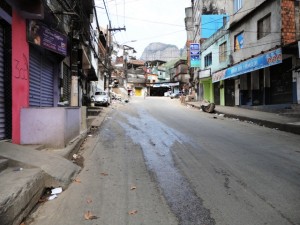
One of the most remarkable things, not adequately covered in the media, is how quiet Rocinha’s usually insanely chaotic streets were. When tanks or police jeeps weren’t storming by the streets were virtually empty and eerily quiet. In all honesty the event played out like some kind of surreal war, one with tanks, helicopters, hundreds of heavily armed police and propaganda flyers. By around 9AM even the Brazilian and Rio de Janeiro flags were being raised, at a strategic point of Rocinha, as if the invading force had just conquered a foreign territory for the first time. Despite all of this, and even though the streets were empty as in a war zone, residents continued, for the most part, with their daily lives. For example, I went to two parties, before and after traversing Rocinha talking to people and taking photos. Churrascos (barbeque parties) are very typical on Sundays in Rio’s low income communities, and regardless of what was taking place in the streets many people were celebrating life, just having a good time at home with their family and friends, watching their typical Sunday soccer games.
Perhaps the most remarkable aspect of the entire ordeal, so far, has been how supportive residents of Rocinha have been. In all honesty, most of Rocinha’s residents have been highly skeptical of the police and politics for decades. Distrust, fear and frustration run deep in Rio’s favelas. This is especially true when considering the BOPE, which in many ways have terrorized Rios favelas for years. This time it was different. BOPE trucks drove by, throwing ‘pacification’ flyers to people in the streets and blasting specially crafted songs about the pacification process. It is safe to say, this time, that the only residents who are upset are those who in some way were benefiting from the fact that Rocinha was a no-man’s-land, dominated by gangsters and where police almost never ventured. I heard a couple young men complain that now they would have to buy incense and smoke their weed indoors. Many of the more directly involved people left the community, but some of them remain and many of their family and friends are still here. These residents are obviously frustrated because their world has been turned upside down. Despite this, I feel very comfortable saying that the VAST majority in Rocinha are happy and hopeful. No one wants corrupt police who will abuse resident’s rights like they have done so many times in the past. But most people are hopeful that some semblance of normality will now be possible in Rocinha. Most of Rocinha’s residents are workers and no longer want to live, going into 2012, in a community where they have to accept things like inebriated 17 year olds riding around the community on motorcycles armed to their teeth.

Resident’s are happy and the community is much calmer, but only time will tell how things turn out. The state owes a lot to communities like Rocinha that have been neglected and oppressed for decades. Favelas, and Rocinha in particular, are absolutely fundamental to the quality of life in the South Zone of Rio. No community contributes more doormen, construction workers, maids, waiters, nannies, and other professions that are so fundamental to the comfortable lifestyle of the South Zone’s middle class and elite residents, and the governor of Rio de Janeiro, Sergio Cabral even publicly acknowledged this yesterday (Sunday the 13th) . As I write this blog post a police helicopter hovers above Laboriaux, reminding us all that this is going to be a long process, but we remain hopeful and will continue posting on any significant occurrences here in Rocinha.

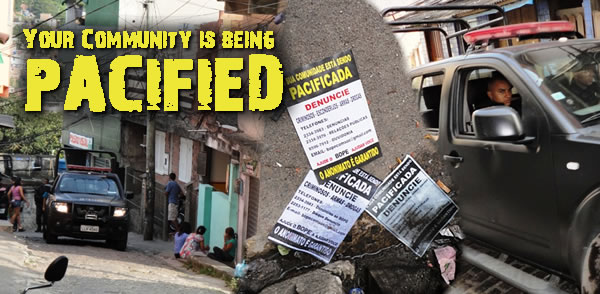





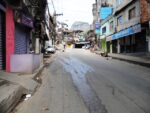
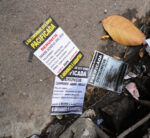
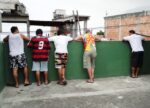
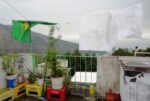
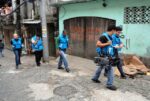
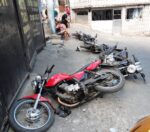

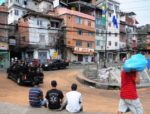
You must be logged in to post a comment.